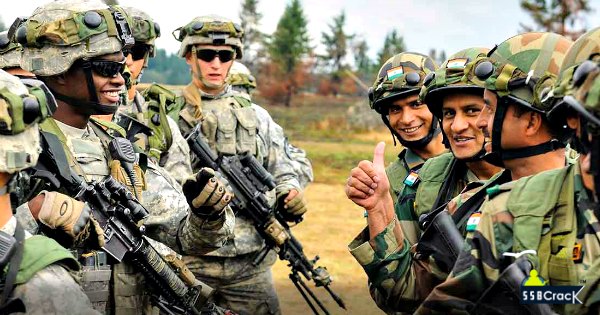Hello, Warriors!
Military exercises are the most effective way to tackle terrorism and improve bilateral ties. India had participated in innumerable exercises in 2015 and it looks forward to continue the same, come new year.
India will participate in two important military exercises in the US next year, namely Rim-of-the-Pacific (RIMPAC) naval exercise and multilateral Red Flag exercise.
The decision was taken in a meeting between India’s defense minister Manohar Parrikar and US Defense Secretary Ash Carter, in Washington, DC.
The Rim-of-the-Pacific (RIMPAC) is a multilateral naval exercise hosted by the US Navy and is considered as the largest international maritime warfare exercise in the world. It is conducted biennially during June and July.
Red Flag is a multilateral aerial combat training exercise hosted by the US Air Force, which will be conducted in April-May 2016. Last time India had participated in the exercise was eight years ago.
The US has also decided to participate in the International Fleet Review of the Indian Navy at Visakhapatnam in February 2016.
Carter and Parrikar expressed satisfaction with the progress in the Defense Technology and Trade Initiative (DTTI) and decided to move forward with the agreement.
Parrikar and Carter commended positive discussions at the Joint Working Group on Aircraft Carrier Technology Cooperation (JWGACTC), especially in the area of aircraft launch and recovery equipment (ALRE), and look forward to continued progress to be achieved at the second meeting of the JWGACTC in February 2016 in India.
They further expressed satisfaction that the Jet Engine Technology Joint Working Group (JETJWG), which met this week in Bengaluru, had concluded its Terms of Reference and had a productive discussion on cooperation in this area.
Although both the leaders kept silence on three strategic agreements – the Communications Inter-Operability and Security Memorandum of Agreement (CISMOA), the LSA (Logistics Support Agreement) and the Basic Exchange and Cooperation Agreement for Geo-Spatial Cooperation (BECA).
The US wants India to sign these agreements for fully transfer of defense technology, but India is not willing to sign it, fearing the US will get access to Indian military equipment and data.
These exercises will prove to be beneficial for the upcoming threats to the territorial boundaries and any threats of terrorism will also be tackled mutually.






